First of all, I hope that you’re all enjoying our new site. Aside from having a sleek new banner, some new pages and a better URL address, our website also makes it possible to reserve meat online using Paypal. Just got to our Pre-Buy Meat Online page.
I’ve been meaning to post for a very long time, but so much has been happening around here that I didn’t really know where to start. However, yesterday there was a big enough change that I couldn’t help but come online and share it with all of you…
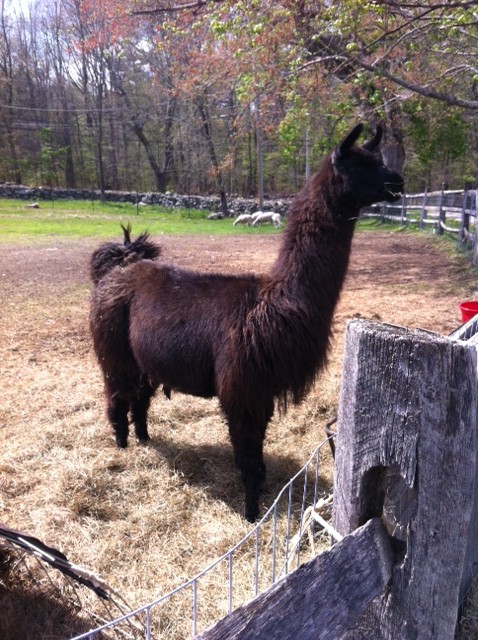
Meet Diamond!
Meet Diamond, our new llama from Pelham, NH. Dave and I just went to pick him up yesterday, and so far he’s exceeded our expectations for awesomeness.
I’m getting ahead of myself though. This all started because we’ve been looking into finding some other pastures for our sheep to graze on this summer. Because we bred all our ewes to a Finn ram, a breed that’s known to throw triplets, quadruplets or even quintuplets, I’ve been getting a little nervous that we were going to end up with more sheep than we have pasture for at Black Brook Farm. Add to this worry the fact that we’ve been getting very little rain so far this year, and we have to ready ourselves for the possibility of a very dry summer, and you can see why we might want some back up fields. However, the more we talked to people, the more obvious it became that there was no way that we could put our sheep out on pasture somewhere without protection against coyotes. Dave and I have yet to see a coyote since we moved to BBF (which could be because of all the barking dogs, or the horses, or just blind luck) but there are surely coyotes in these woods too — so that’s where Diamond comes in! We researched some different ways to protect our girls and their babies from predators — guard dogs, permanent structures — but a llama seemed like the best solution. Diamond eats the same things that sheep do (unlike a dog), he doesn’t require any special training, and he’ll stay behind 4′ electronet fencing! Plus, he’s a perfect gentleman, and apparently has never spit at a human, he just doesn’t like coyotes. There’s lots of information about guard llamas online, but here’s a nice succinct study if you want to read more: http://www.sprucelane.com/guardllamas.pdf.
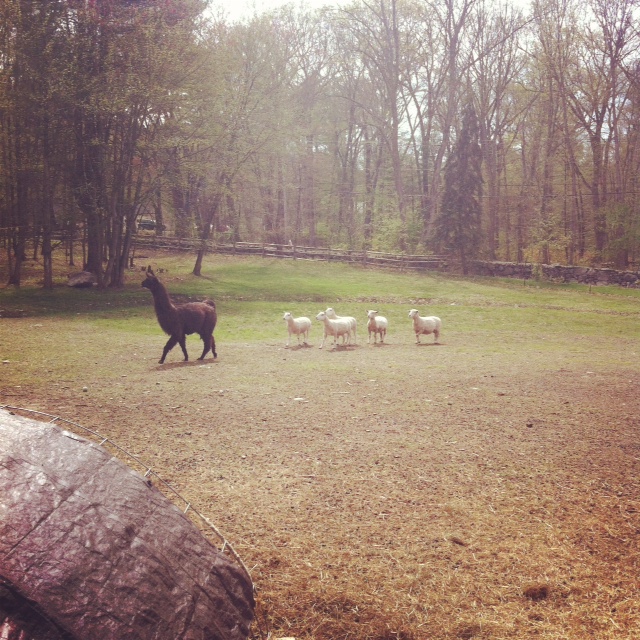
The ewes checking Diamond out
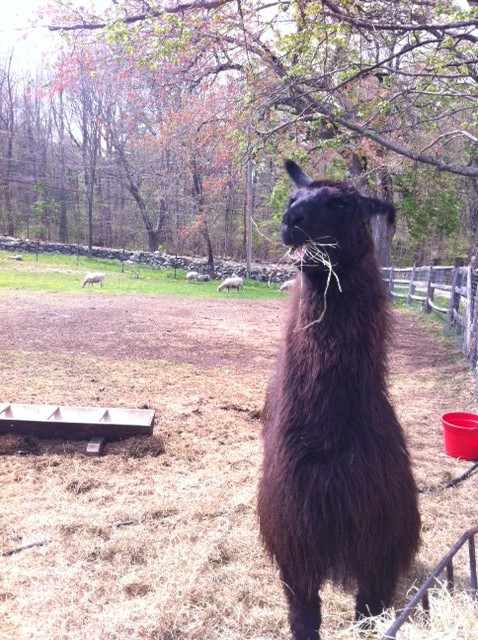
So handsome!
The sheep also have gotten sheared and look more pregnant than ever! We’ve expecting lambs to drop any day now.

Before

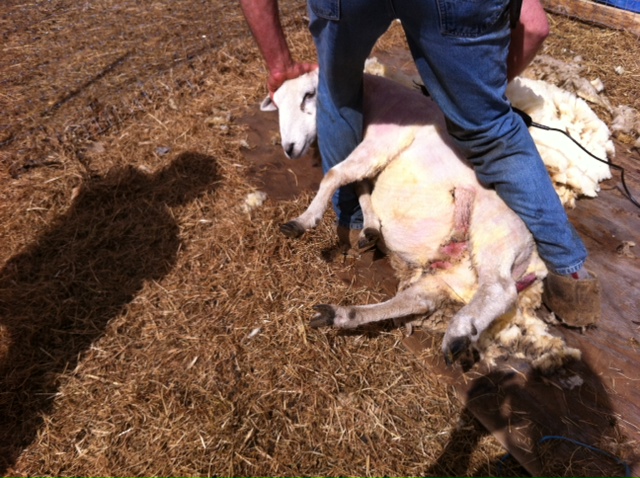
During…
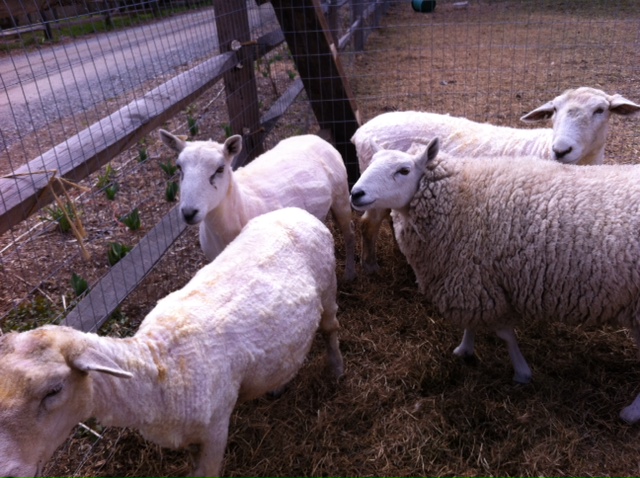
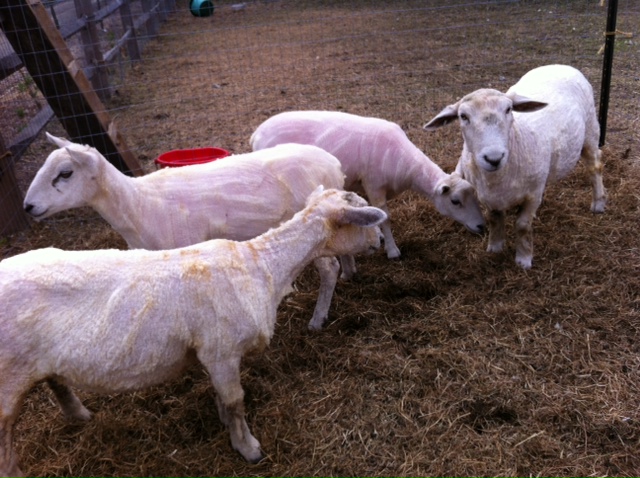
After
And now, finally, our new baby chicks and piglets…We were on our way up to get our breed sow from Vermont when we got a call that she had had a miscarriage, so we decided to go with piglets instead. It’s sad that we’re not going to get a big beautiful pig momma, and that we didn’t get to see our piglets birthed, but it’s nice to have control over exactly how many piglets we have (six right now!) I’m just going to post some pictures, and I’ll write more later. It’s almost 9 AM and there are things to do today so I have to wrap this up.
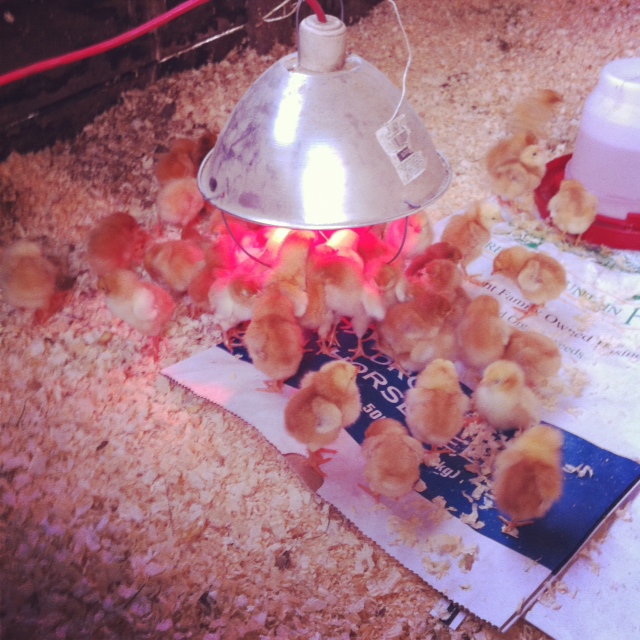
Baby chicks under the heat lamp
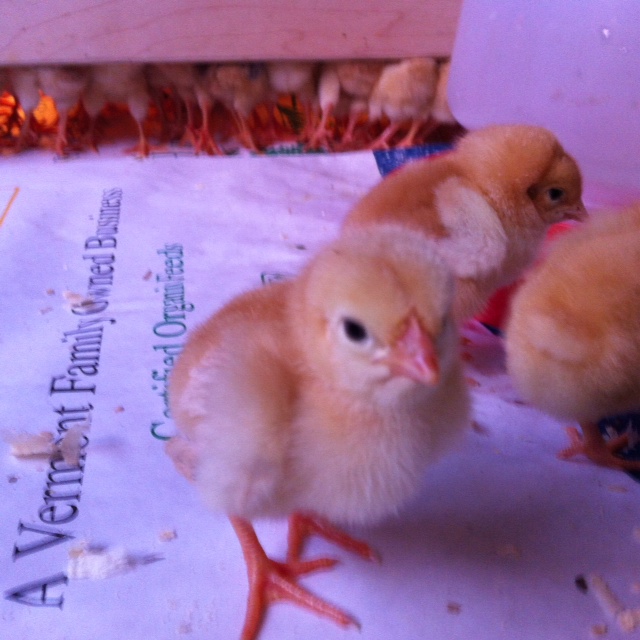
More baby chicks (note all those feet under the heat box)
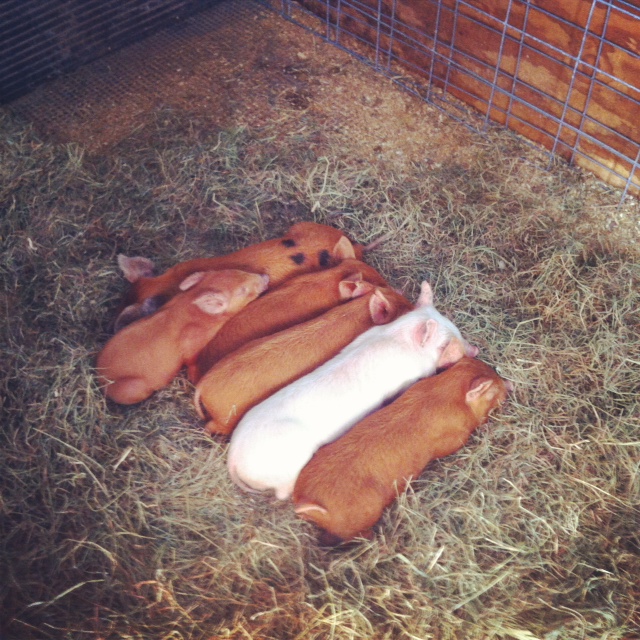
Coming home in the trailer

Chowing down on whey
And finally, the picture you’ve all been waiting for…

Our new sign!

























